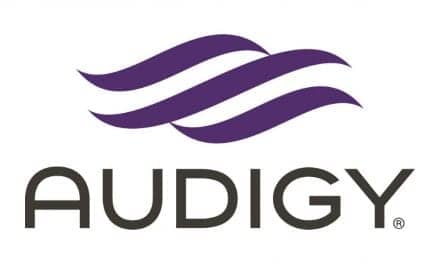The National Science Foundation (NSF) has awarded $1.65 million to DeafTEC: Technological Education Center for Deaf and Hard-of-Hearing Students, which will be used to transition the program into a resource center, the Rochester Institute of Technology (RIT) announced.
The goal of the DeafTEC Resource Center is to increase the number of deaf and hard-of-hearing individuals in highly skilled technician jobs in which there continues to be underrepresentation and underutilization of such individuals in the workplace.
Originally funded in 2011 for four years and renewed for four more years in 2015, DeafTEC is housed at the National Technical Institute for the Deaf (NTID), one of nine colleges of RIT.
“For the third time, the National Science Foundation has recognized NTID’s DeafTEC program and its commitment to diversifying the technical workforce by increasing the participation of deaf and hard-of-hearing individuals in STEM fields,” said Gerry Buckley, NTID president and RIT vice- president and dean. “NTID and our partners are uniquely suited to increase professional development opportunities in these fields, expand STEM-related online resources and curricula, and model inclusivity for other STEM efforts.”
The DeafTEC Resource Center builds on and utilizes materials and networking that has been developed as part of the DeafTEC National Center. The DeafTEC Resource Center will:
- Leverage partnerships to broaden professional development opportunities on-site and online for high school teachers, community college faculty, and employers to improve access to learning and technician employment for deaf and hard-of-hearing students;
- Expand, enhance, and broadly disseminate DeafTEC’s online resources and curricula available through its websites that serve as a clearinghouse for information related to technical education and technician careers for deaf and hard-of-hearing students and a national resource for teaching student veterans with hearing loss;
- Collaborate with and provide mentoring for prospective researchers, project developers, and current projects and centers on creating inclusive environments for deaf and hard-of-hearing students and military veteran students with hearing loss.
DeafTEC’s innovative approach provides deaf and hard-of-hearing students access to career and educational resources specifically designed to meet the challenges they face in school and on the job. DeafTEC is transforming career attainment of deaf and hard-of-hearing individuals so they have greater representation in highly skilled technician careers. Hearing loss, one of the most common disabilities in the military, also can have a significant impact on the veteran’s learning and ability to connect and communicate with others. To address the unique needs of military veterans, DeafTEC provides resources for community colleges to improve access to learning and accommodations for this population.
People with disabilities continue to be employed at rates much lower than the rest of the population. This lower employment rate is especially true of Americans who are deaf or hard-of-hearing. Data from 2016 shows that approximately 54% of deaf and hard-of-hearing individuals age 25-64 participated in the labor force, compared to approximately 78% of hearing individuals, according to the RIT announcement. College graduation can provide major economic benefits for deaf and hard-of-hearing individuals who earn 2.6 times more than non-college graduates. Being employed in STEM provides an even greater benefit, since deaf and hard-of-hearing individuals in STEM occupations earn 34% more than their counterparts in non-STEM fields.
DeafTEC plans to broaden participation in STEM technician careers for deaf and hard-of-hearing individuals by providing them, as well as their teachers, counselors, employers, and co-workers, with resources that will help them succeed both in the classroom and on the job. More deaf and hard-of-hearing individuals in the workplace, particularly in highly skilled technician careers, leads to the creation of a more diverse workforce and increased acceptance of such individuals who continue to be underrepresented in technical fields. The center’s resources on universal design, developmental math, and writing across the STEM curriculum can benefit all students in need of additional resources and support.
“I’m so pleased that RIT has received this significant grant, which will help support their dedicated efforts to create a more diverse and accepting workforce,” said Rep. Joe Morelle (D-NY). “This will further cement RIT’s reputation as a global leader in providing innovative services to help deaf and hard-of-hearing students reach their full potential. Investments like this are essential to fostering a more accessible and inclusive society for all people, and I thank NSF for their support.”
Source: RIT



